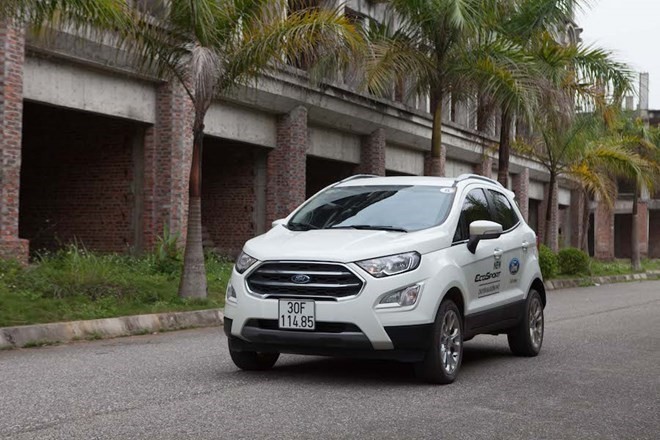
One of the policies is the reduction of tax on some vehicles imported from ASEAN countries to zero percent and the decline of special consumption tax on vehicles with engines under 2.0 litres by 5 percent.
The policies encouraged domestic automobile assembling companies to expand operations and improve productivity. Notably, Truong Hai Auto Corporation (Thaco) inaugurated a new factory with capacity of 50,000 vehicles per year, while Hyundai Thanh Cong also broadened commercial car production to 42,000 vehicles per year.
Therefore, domestic production and assembling recovered to reach 114,600 vehicles of different kinds in the first six months of this year, up about 15.5 percent from the same time in 2017.
After two consecutive months of falling, the number of imported automobiles in March rose with 3,636 vehicles. But the figure reduced slightly in April and May, and slumped in June when only 2,200 vehicles were imported.
In the first six months, a total 8,315 completely-built under 9-seat vehicles were imported, at a total cost of $188 million , representing a reduction of 68.6 percent in volume and 58 percent in value.
In the third quarter, the number of imported cars is predicted to increase sharply compared to the first two quarters as enterprises adapt to new policies.
Meanwhile, the Ministry of Industry and Trade forecast that the total number of automobiles produced and assembled domestically in 2018 will reach about 235,000, down 1.3 percent over 2017, with about 60,000 vehicles produced in each quarter.
The ministry attributed the fall to unequal capacity to adapt to Decree 116/2017/ND-CP on conditions for production, assembling, import, trading and maintenance service supply activities of domestic firms.
To promote domestic automobile growth, the ministry said that it is necessary to apply measures to better control imported cars and support domestic production and assembling.
Along with speeding up the project to expand the factory of Hyundai Thanh Cong, the ministry will propose adjusting import tax for automobile spare parts and accessories.
Amendments to special consumption tax rate to vehicles with high localised content will be considered, with exemption given to parts produced domestically.
The ministry will also build a supply chain for automobile sector, while designing policies to attract investment from multi-national groups, focusing on producers of vehicles which have not been introduced in ASEAN as yet.
























